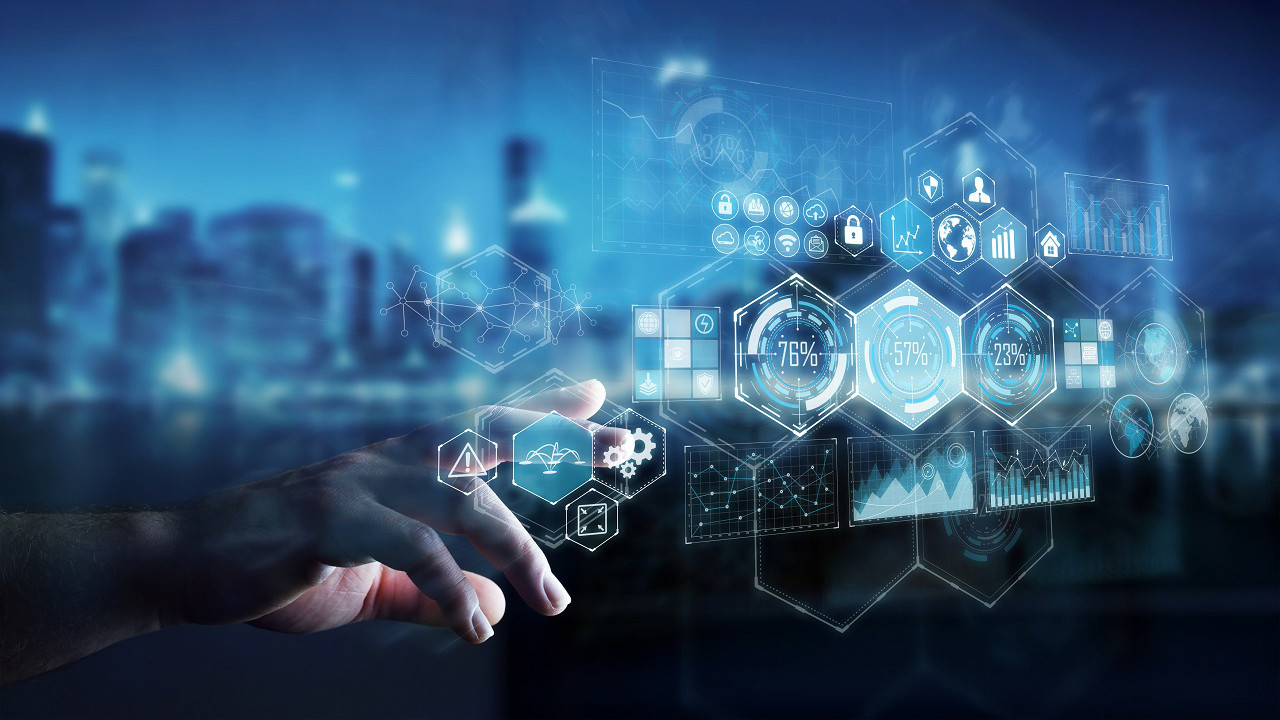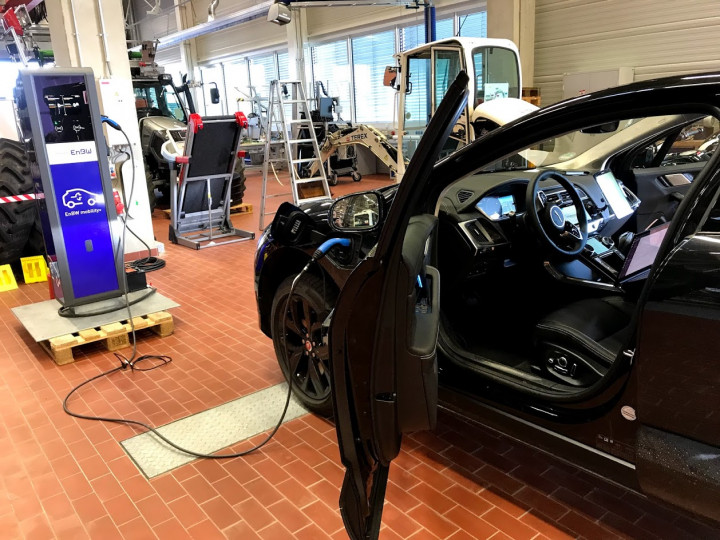Stuttgart and Berlin, Germany – Bosch has reached the next milestone on the road to becoming a leading global IoT supplier. The company’s first step was to give cars, machines, buildings, and millions of other everyday objects connectivity. Bosch sold 52 million web-enabled products in 2018 alone, over a third more than in the previous year. Using its open-source-based Bosch IoT Suite, the company has already connected more than 10 million devices from various manufacturers. Bosch is now working with partners to enable these things to communicate and interact with one another in their own ecosystems. The leading supplier of technology and services is offering a glimpse into the future of connected mobility, industry, and life at Bosch ConnectedWorld 2019 (BCW19) in Berlin, an industry gathering featuring the tagline “From the internet of things to the economy of things.” Distributed ledger technologies (DLT) such as blockchain may well become the key technology in these domains. “By merging the physical and digital realms, we are making people’s everyday lives easier,” said Bosch CEO Dr. Volkmar Denner at BCW19, where he addressed some 5,000 technology buffs from the political, business, scientific, and public arenas. “In the future, things will not just be connected, they will do business together.”
DLT as key technology for the economy of things
Bosch is taking a strategic interest in these technologies, as they will usher in the “economy of things,” which will enable things to communicate independently with other connected things, and even enter into smart contracts on their own. In the mobility domain, for example, this could help expedite routine procedures in cars. Services of all kinds could result, such as automatically billing vehicle owners for the use of toll roads, parking spaces, and charging stations.
A car that negotiates with charging stations
Bosch is working with the energy supplier EnBW on a prototype that uses blockchain technology to improve the e-car recharging process. The idea is to streamline and tailor the entire process to customers’ needs, so they can select, reserve, and pay for recharging services as they see fit. For example, the operator could combine the software developed by Bosch for cars with a smart charging-station manager to offer customers transparent pricing models, with the options varying in real time according to the availability of charging stations and green electricity sourced from renewables. The entire transaction – reservation and payment – is a fully automated blockchain operation. This service can factor other customer preferences into the equation. For example, a customer who has small children and likes coffee could opt for a charging station with a playground and cafés nearby. Initial trials with this new system are underway.
A car that pays its own parking fees
Bosch and Siemens are jointly developing a second application, a smart parking-management system based on blockchain. In the future, DLT will make parking considerably less of a chore. Cars will communicate directly with parking facilities in their vicinity and negotiate the best terms. As soon as the car reaches the entrance to the chosen parking garage, it will identify itself at the entry barrier, which will then be raised without the driver having to remove a ticket from the dispenser. The driver will also be able to leave the parking garage without further ado, since the vehicle will have already communicated with the exit barrier and settled the parking fee in a virtual transaction. Drivers will no longer have to keep small change at the ready or worry about losing their parking ticket. The two companies have installed a prototype at Bosch’s Renningen research campus and at the Siemens campus in Munich.
Distributed structures to restore trust in the internet
Distributed structures across the internet are at the core of DLT. Rather than a few platform providers storing data in their data centers, it is spread across numerous servers. “To build trust in digital ecosystems, we need open platforms and an internet that belongs to everyone,” Denner said. This will bring real benefits to people. If users are “captive,” a web platform provider can change its terms of use at will. By gaining independence from the big internet players, users no longer have to blindly accept such changes. “We are building trust in internet platforms with these distributed structures. They enable many players to participate,” said Bosch board of management member and CDO/CTO Dr. Michael Bolle. Distributed platforms operated by an ecosystem encompassing numerous equal partners are also better protected against external attacks.
Leading the IoT with three T’s – things, technology, trust
At Bosch’s initiative, representatives from leading international associations and organizations including the Institute of Electrical and Electronics Engineers (IEEE), Digital Europe, ETSI, the Eclipse Foundation, Trustable Technology, Industrial Internet Consortium (IIC), Plattform Industrie 4.0, and the Trusted IoT Alliance will be meeting at the first Digital Trust Forum in Berlin on May 16, 2019. The main focus of the gathering is the question of how to build and safeguard trust in digital systems. By 2020, global IoT market volume is expected to rise to 250 billion U.S. dollars, an annual increase of 35 percent. “We cannot accept a situation in which the overwhelming reaction to digital innovations is mistrust and fear. For this reason, the aim of the Digital Trust Forum is to initiate open dialogue among experts to discuss the trust-related issues raised by the internet,” Bolle said.
5,000 attendees, 80 exhibitors, 150 speakers
At this year’s Bosch ConnectedWorld, more than 80 exhibitors are demonstrating how rapid advances on the internet of things are creating new opportunities at work and in everyday life. Some 5,000 people are expected to convene at STATION Berlin, a venue with 14,000 square meters of floor space, on May 15 and 16. The lineup of more than 150 speakers includes Bosch CEO Volkmar Denner, Munich Re CEO Dr. Joachim Wenning, Vattenfall CEO Magnus Hall, and HTML inventor and world wide web founder Sir Timothy Berners-Lee. Some 700 programmers, startup associates, and designers will take part in a hackathon to come up with new ideas for connected solutions for everyday life, mobility, manufacturing, and logistics. 2019 is the sixth time Bosch ConnectedWorld has taken place. It is one of the world’s largest international conferences devoted to the internet of things.
Zita Hella Varga
Phone: +36 70 667-6374
Bosch has been present in Hungary since 1898 with its products. After its re-establishment as a regional trading company in 1991, Bosch has grown into one of Hungary’s largest foreign industrial employers with currently nine Hungarian subsidiaries. In fiscal 2017 it had a total turnover of HUF 1304 billion and sales of the Bosch Group on the Hungarian market – not counting trade among its own companies – was HUF 244 billion. The Bosch Group in Hungary employs roughly 13,500 people (as per January 1, 2018). In addition to its manufacturing, commercial and development business, Bosch has a network of sales and service operations that covers the entire country.
The Bosch Group is a leading global supplier of technology and services. It employs roughly 410,000 associates worldwide (as of December 31, 2018). The company generated sales of 78.5 billion euros in 2018. Its operations are divided into four business sectors: Mobility Solutions, Industrial Technology, Consumer Goods, and Energy and Building Technology. As a leading IoT company, Bosch offers innovative solutions for smart homes, smart cities, connected mobility, and connected manufacturing. It uses its expertise in sensor technology, software, and services, as well as its own IoT cloud, to offer its customers connected, cross-domain solutions from a single source. The Bosch Group’s strategic objective is to deliver innovations for a connected life. Bosch improves quality of life worldwide with products and services that are innovative and spark enthusiasm. In short, Bosch creates technology that is “Invented for life.” The Bosch Group comprises Robert Bosch GmbH and its roughly 460 subsidiary and regional companies in over 60 countries. Including sales and service partners, Bosch’s global manufacturing, engineering, and sales network covers nearly every country in the world. The basis for the company’s future growth is its innovative strength. At nearly 130 locations across the globe, Bosch employs some 68,700 associates in research and development.
The company was set up in Stuttgart in 1886 by Robert Bosch (1861-1942) as “Workshop for Precision Mechanics and Electrical Engineering.” The special ownership structure of Robert Bosch GmbH guarantees the entrepreneurial freedom of the Bosch Group, making it possible for the company to plan over the long term and to undertake significant upfront investments in the safeguarding of its future. Ninety-two percent of the share capital of Robert Bosch GmbH is held by Robert Bosch Stiftung GmbH, a charitable foundation. The majority of voting rights are held by Robert Bosch Industrietreuhand KG, an industrial trust. The entrepreneurial ownership functions are carried out by the trust. The remaining shares are held by the Bosch family and by Robert Bosch GmbH.
Additional information is available online at www.bosch.com, www.iot.bosch.com, www.bosch-press.com, www.twitter.com/BoschPresse



